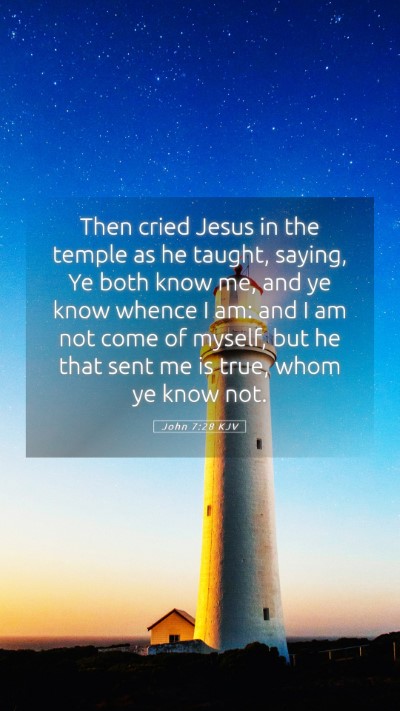Old Testament
Genesis Exodus Leviticus Numbers Deuteronomy Joshua Judges Ruth 1 Samuel 2 Samuel 1 Kings 2 Kings 1 Chronicles 2 Chronicles Ezra Nehemiah Esther Job Psalms Proverbs Ecclesiastes Song of Solomon Isaiah Jeremiah Lamentations Ezekiel Daniel Hosea Joel Amos Obadiah Jonah Micah Nahum Habakkuk Zephaniah Haggai Zechariah MalachiVerse
John 7:1 John 7:2 John 7:3 John 7:4 John 7:5 John 7:6 John 7:7 John 7:8 John 7:9 John 7:10 John 7:11 John 7:12 John 7:13 John 7:14 John 7:15 John 7:16 John 7:17 John 7:18 John 7:19 John 7:20 John 7:21 John 7:22 John 7:23 John 7:24 John 7:25 John 7:26 John 7:27 John 7:28 John 7:29 John 7:30 John 7:31 John 7:32 John 7:33 John 7:34 John 7:35 John 7:36 John 7:37 John 7:38 John 7:39 John 7:40 John 7:41 John 7:42 John 7:43 John 7:44 John 7:45 John 7:46 John 7:47 John 7:48 John 7:49 John 7:50 John 7:51 John 7:52 John 7:53

